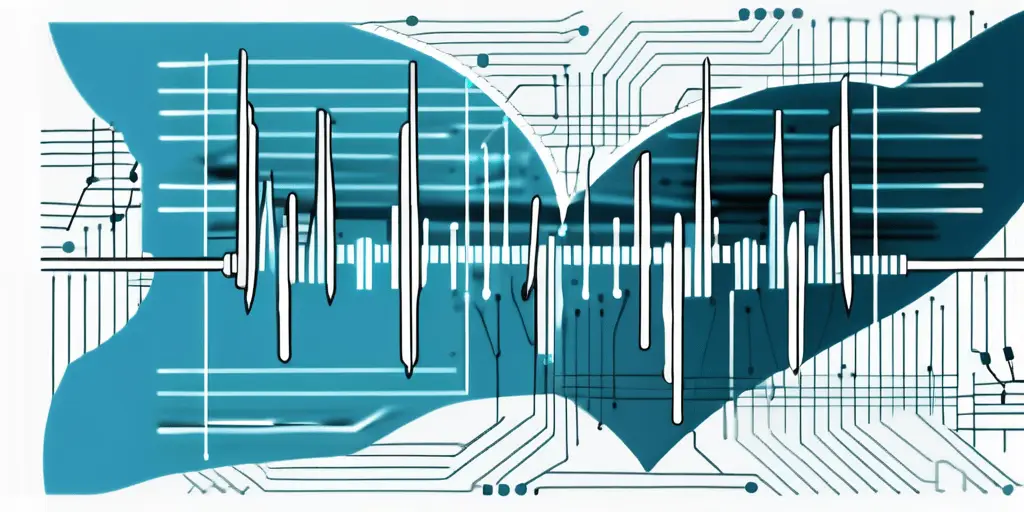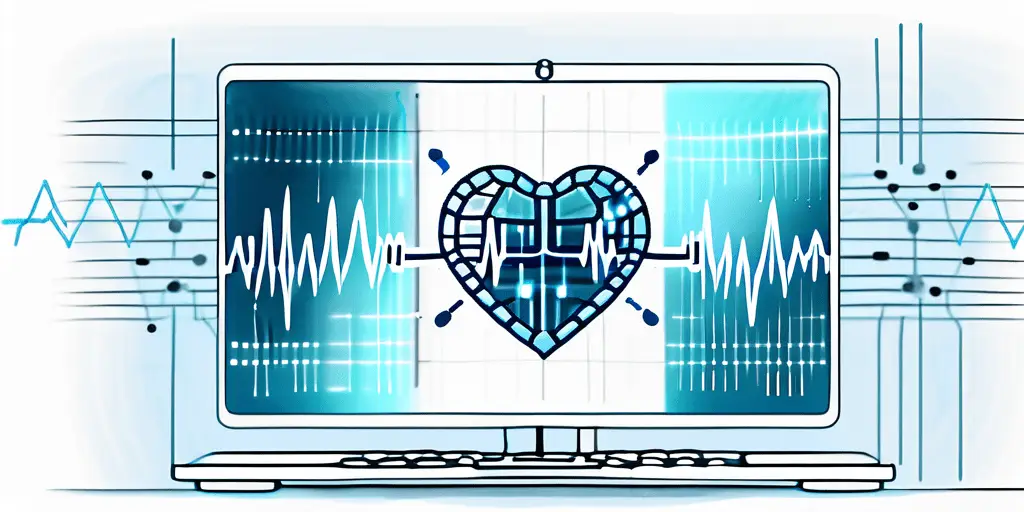Updated November 2, 2024
Medical device vulnerabilities are a growing concern, as they have the potential to compromise patient safety and disrupt healthcare institutions. In this article, we will explore the understanding of cybersecurity in medical devices, the consequences of its abuse, the ramifications of its misuse, and strategies to mitigate cybersecurity risks. Furthermore, we will delve into the future of cybersecurity in medical devices and the emerging technologies that aim to enhance security.
Understanding Cybersecurity in Medical Devices
The healthcare sector heavily relies on medical devices to deliver optimal patient care. These devices, from pacemakers to insulin pumps, are designed to improve patient outcomes. However, as these devices become more connected, they are exposed to cybersecurity threats.
The importance of cybersecurity in healthcare cannot be emphasized enough. The integrity and confidentiality of patient data are critical, and breaches or unauthorized access can lead to dire consequences. Additionally, vulnerabilities in medical devices can be exploited, compromising patient safety and potentially causing harm.
The Importance of Cybersecurity in Healthcare
In recent years, cyberattacks on healthcare organizations have been on the rise. These attacks can disrupt care delivery, compromise patient data, and even lead to financial loss. For example, in 2017, the WannaCry ransomware attack affected hospitals across the globe, postponing or canceling patient appointments and surgeries.
The growing interconnectedness of medical devices and the proliferation of the Internet of Things (IoT) in healthcare have expanded cybercriminals’ attack surface. Healthcare institutions must prioritize cybersecurity measures to protect patients and their sensitive information.
Common Types of Cybersecurity Threats in Medical Devices
Medical devices may face various cybersecurity threats. One common threat is malware, which can infect devices through malicious software or external media. Once infected, these devices can be controlled or manipulated by unauthorized individuals.
Another significant threat is the unauthorized access to patient data or the hijacking of medical devices. This can lead to identity theft, fraudulent activities, and compromised patient safety. Additionally, denial-of-service attacks can disrupt the functionality of medical devices, potentially delaying critical patient care.
However, it is essential to note that cybersecurity in medical devices is not just about protecting patient data and ensuring device functionality. It also plays a crucial role in safeguarding the overall healthcare infrastructure. For instance, a cyberattack on a medical device could potentially compromise the entire network, allowing hackers to access other critical systems and wreak havoc.
The complexity of medical devices adds another layer of vulnerability. These devices often have intricate software and hardware components that may have vulnerabilities. Ensuring the security of these components requires constant monitoring, regular updates, and collaboration between device manufacturers, healthcare providers, and cybersecurity experts.
The evolving nature of cybersecurity threats requires healthcare institutions to stay updated with the latest cybersecurity technologies and practice advancements. This includes implementing robust encryption mechanisms, multi-factor authentication, and intrusion detection systems to detect and prevent unauthorized access or tampering.
The Consequences of Cybersecurity Abuse in Medical Devices
The abuse of cybersecurity in medical devices can have severe repercussions beyond compromising patient safety. Healthcare institutions can suffer significant financial losses and damage to their reputation.
Patient Safety Risks
Instances of cybersecurity abuse can directly impact patient safety. In 2015, the FDA issued a safety communication regarding vulnerabilities in certain infusion pumps, acknowledging the potential for cybersecurity breaches. Manipulation of these devices could result in incorrect dosages and harm to patients.
Imagine a cybercriminal gaining unauthorized access to a hospital’s infusion pump. They maliciously alter the dosage settings, causing patients to receive incorrect amounts of medication. This could lead to serious health complications or even fatalities. The consequences of such actions are not only for the patients and their families but also for the healthcare institution responsible for their care.
The manipulation of medical devices such as implantable pacemakers or insulin pumps can have life-threatening consequences. Cybercriminals with malicious intent could alter the settings, disrupting the normal functioning of these devices and endangering patient lives.
Consider the potential impact of a cyberattack that targets implantable pacemakers. By tampering with the device’s programming, cybercriminals could disrupt the heart’s rhythm, leading to cardiac arrest or other life-threatening complications. The vulnerability of these devices to cybersecurity abuse highlights the urgent need for robust security measures to protect patient well-being.
Financial Implications for Healthcare Institutions
Cybersecurity breaches in medical devices can have significant financial implications for healthcare institutions. These breaches can lead to costly legal battles, regulatory penalties, and the need for extensive remediation efforts.
For instance, in 2016, a well-known healthcare provider experienced a cyberattack that resulted in the theft of patient records. This breach cost the organization millions of dollars in legal fees, settlements, forensic investigations, and system upgrades to prevent future incidents.
Beyond the immediate financial impact, healthcare institutions also face long-term consequences. The loss of patient trust and damaged reputation can lead to declining patient admissions and revenue. Patients may seek care elsewhere, fearing their personal information and well-being are at risk. Rebuilding trust and restoring the institution’s reputation can be lengthy and challenging.
Additionally, healthcare institutions may face regulatory penalties for failing to adequately protect patient data and ensure the security of medical devices. These penalties can further strain their financial resources and hinder their ability to provide quality care.
The financial implications of cybersecurity abuse in medical devices are not limited to immediate costs but can have far-reaching consequences that impact the sustainability and viability of healthcare institutions.
The Misuse of Cybersecurity in Medical Devices
In addition to abuse, the misuse of cybersecurity in medical devices poses unique challenges. Unintentional misuse and deliberate misuse can both have detrimental effects on patient safety and healthcare institutions.

When it comes to unintentional misuse, healthcare providers who do not adhere to proper cybersecurity protocols or are unaware of the potential risks associated with medical devices can inadvertently create breaches or vulnerabilities that cybercriminals can exploit. This lack of awareness can seriously affect patient confidentiality and overall healthcare security.
For instance, in 2019, a large healthcare organization suffered a data breach due to an employee’s accidental disclosure of sensitive patient data. This breach not only compromised patient confidentiality but highlighted the need for improved training and awareness regarding cybersecurity among healthcare professionals. Healthcare providers must receive comprehensive education on cybersecurity best practices to prevent unintentional misuse.
On the other hand, deliberate misuse of cybersecurity in medical devices may stem from various motives, such as corporate espionage or personal gain. In some instances, disgruntled employees or cybercriminals may intentionally manipulate the functionality of medical devices to cause harm.
A notable example is the case of an individual who tampered with medical devices at a healthcare facility, harming patients. This deliberate misuse highlighted the need for robust security measures and strict access controls to prevent unauthorized access to medical devices. Implementing multi-factor authentication, encryption, and regular security audits can help mitigate the risks associated with deliberate misuse.
The consequences of deliberate misuse extend beyond immediate harm to patients. Due to deliberate cybersecurity breaches, healthcare institutions can suffer severe reputational damage, legal repercussions, and financial losses. These incidents underscore the importance of proactive measures, such as continuous monitoring and threat intelligence, to detect and prevent deliberate misuse before it escalates.
Mitigating Cybersecurity Risks in Medical Devices
Efforts to mitigate cybersecurity risks in medical devices are crucial to safeguard patient safety and protect healthcare institutions. Regulatory bodies play a significant role in setting standards and enforcing cybersecurity measures, while healthcare providers must prioritize best practices and adopt robust security protocols.

Cybersecurity in medical devices is a complex and evolving field that requires constant vigilance and proactive measures. As technology advances and cyber threats become more sophisticated, the healthcare industry must stay ahead of potential risks to ensure the integrity and confidentiality of patient data.
Role of Regulatory Bodies in Cybersecurity
Regulatory bodies such as the FDA and international standards organizations have recognized the importance of cybersecurity in medical devices. They have implemented guidelines and regulations to ensure their security and integrity.
Regulatory bodies collaborate with industry experts and cybersecurity professionals to stay informed about emerging threats and vulnerabilities. This partnership allows for the development of agile and effective strategies to address cybersecurity challenges in medical devices.
For instance, the FDA released premarket and postmarket guidance for medical device manufacturers, emphasizing the need for robust cybersecurity protocols throughout the product lifecycle. Compliance with these guidelines is crucial for manufacturers to obtain regulatory approval.
Best Practices for Healthcare Providers
Healthcare providers must prioritize best practices to mitigate cybersecurity risks. This includes regular training and awareness programs for staff to ensure they understand the potential threats and how to respond in case of an incident.
Implementing strong access controls, encrypting sensitive data, and regularly patching and updating medical devices are essential to reducing vulnerabilities.
Collaboration between healthcare providers, cybersecurity experts, and regulatory bodies is essential to creating a comprehensive and effective cybersecurity framework for medical devices. By sharing knowledge and resources, stakeholders can better protect patient safety and uphold the integrity of healthcare systems.
The Future of Cybersecurity in Medical Devices
The rapidly evolving cybersecurity landscape in medical devices requires ongoing innovation and adaptation. The future holds promising technologies and approaches to enhance security and protect patient safety.

Emerging Cybersecurity Technologies
Researchers and technologists are constantly developing advanced techniques to combat cybersecurity threats in medical devices. For example, blockchain technology has gained attention due to its potential to enhance data security and protect against unauthorized access.
Blockchain technology, developed initially for cryptocurrencies like Bitcoin, is a decentralized and immutable ledger that records transactions across multiple computers. Its distributed nature makes it difficult for hackers to tamper with data, providing an added layer of security for medical devices. By implementing blockchain in medical devices, healthcare providers can ensure the integrity and confidentiality of patient data, reducing the risk of data breaches.
Machine learning algorithms and artificial intelligence are also leveraged to detect anomalies and identify potential vulnerabilities in connected medical devices. These technologies can potentially enhance cybersecurity measures and significantly enable proactive threat detection.
Machine learning algorithms can analyze vast amounts of data from medical devices and identify patterns that may indicate potential threats. By continuously monitoring device behavior, AI-powered systems can detect unusual activity and autonomously respond to potential attacks. This real-time threat detection and response capability is crucial in maintaining the integrity and safety of medical devices.
The Role of Artificial Intelligence in Enhancing Security
Artificial intelligence (AI) is vital in bolstering cybersecurity in medical devices. Machine learning algorithms can analyze vast amounts of data and identify patterns that might indicate potential threats.
AI-powered security systems can continuously monitor medical devices, detect unusual behavior, and autonomously respond to potential attacks. The ability to quickly identify and neutralize threats is crucial in maintaining the integrity and safety of medical devices.
AI can also improve the authentication process for medical devices. Biometric authentication, such as fingerprint or iris scanning, can be integrated with AI algorithms to ensure that only authorized personnel can access and operate the devices. This adds an extra layer of security and reduces the risk of unauthorized access or tampering.
AI can assist in developing predictive models that anticipate potential vulnerabilities and recommend security enhancements. By analyzing historical data and identifying patterns, AI algorithms can provide valuable insights to improve the overall security posture of medical devices.
Conclusion
The impact of cybersecurity abuse and misuse in medical devices extends beyond patient safety. Healthcare institutions must prioritize cybersecurity measures to protect patient data, mitigate financial risks, and maintain their reputation. Regulatory bodies play a critical role in establishing guidelines and enforcing cybersecurity standards, while healthcare providers must adhere to best practices and adopt robust security protocols. The future of cybersecurity in medical devices looks promising, with emerging technologies such as blockchain and artificial intelligence aiming to enhance security and ensure the utmost safety of patients. The continuous innovation and adaptation of cybersecurity measures will be vital to addressing the evolving threats and vulnerabilities in this critical domain.
As we navigate the complexities of cybersecurity in medical devices, expert guidance, and robust protection are paramount. Blue Goat Cyber stands at the forefront of cybersecurity excellence, offering bespoke B2B services that address the unique challenges faced by the healthcare industry. Our veteran-owned company is committed to ensuring your medical devices are shielded from cyber threats with the highest dedication and expertise. With our comprehensive understanding of HIPAA and FDA compliance and our advanced penetration testing, we are equipped to secure your digital infrastructure and patient data against any threat. Don’t let cybersecurity concerns hold you back from delivering exceptional patient care. Contact us today for cybersecurity help and partner with Blue Goat Cyber to transform your vulnerabilities into fortified strengths.


